- Home
- Mark Chadbourn
World's end taom-1 Page 2
World's end taom-1 Read online
Page 2
The detective shrugged. "Can't have been long. Some postman on his bike heard the commotion and we had a car here within five minutes of his call. What did you see?"
Church described hearing the noise of the fight and then seeing the tall man mugging his victim. The detective eyed him askance, a hint of suspicion in his face. "And then he attacked you?"
Church shook his head. "I don't think so."
"So what happened to you and the young lady?"
There was an insectile skittering deep in his head as he fought to recall what he had seen; he was almost relieved when the memory refused to surface. "I was tired, the ground looked so comforting …" The detective gave him the cold eye. "How should I know?" Church looked round for a way to change the subject. "Where's his briefcase?"
"We didn't find one." The detective scribbled a line in his notebook and seemed brighter, as if the disappearance of the briefcase explained everything; a simple mugging after all.
Church spent the next hour at the station, growing increasingly disturbed as he futilely struggled to express his fears in some form the police could understand. In reception, he bumped into his fellow witness, whose expression suggested she had had a similar experience.
"Look, can we go and grab a coffee? I need to talk about this," she said without any preamble. She ran her fingers through her hair, then lightened. "Sorry. Ruth Gallagher." She stuck out a hand.
Church took it; her grip was strong and confident. "Jack Churchill. Church. They weren't having any of it, were they?"
Ruth sighed wearily. "No surprise there. I'm a solicitor, in court every day. I found out pretty early on that once the police have discovered the most simplistic idea out there, they're like a dog with a bone. If they want to file this under M for Mugging, by God they're going to, and nothing I'm going to say will change their minds."
"A mugging. Right. And JFK got roughed up that day in Dallas." Church watched her features intently, trying to discern her true thoughts.
She looked away uncomfortably, disorientation and worry reflected in her face.
There was an intensity about her that Church found impossible to resist. They went to a little place on St. John's Hill at Clapham junction, filled with hissing steam from the cappuccino machine, the sizzle of frying food and the hubbub of local workers taking an early breakfast. They sat opposite each other at a table in the window and within seconds all the noise had faded into the background.
Sipping her coffee hesitantly, Ruth began. "What did we see?"
Church chewed on his lip, trying to find the words that would tie down the errant memory. "It seemed to me that his face began to change."
"Impossible, of course," Ruth said unconvincingly. "So there has to be a rational explanation."
"For a changing face?"
"A mask?"
"Did it look like a mask to you?" He tapped his spoon in his saucer. The merest attempt at recollection made him uncomfortable. "This is what I saw: a man, much bigger than average, picked up someone with a strength he shouldn't have had, even at that size. Then he turned to us and his features started to flow away like they were melting. And what lay beneath-" He swallowed. "-I have no idea."
"And then we both went out at exactly the same time."
"Because of what we saw next."
Ruth gave an uncomfortable smile. "I'm not the kind of person who has hallucinations in a moment of tension."
Church glanced out of the window, as if an answer would somehow present itself to him, but all he could see was a tramp on the opposite side of the road watching them intently. There was something about the unflinching stare that disturbed him. He turned back to his coffee and when he looked again the tramp was gone.
"This whole business is making me paranoid," he said. "Maybe we should leave it at that. We're not going to discover what happened. Just put it down to one of those inexplicable things that happen in life."
"How can you say that?" Ruth exclaimed. "This was real! We were right at the heart of it. We can't just dismiss it." She leaned forward with such passion Church thought she was going to grab his jacket. "You must have some intellectual curiosity."
"I find it difficult to get curious about anything these days." There was a hint of surgical dissection in the way she eyed him; he almost felt his ego unpeeling.
"At least give me your number in case one of us remembers any more details," she said. It was too firm to be a request. Church scribbled the digits on a paper serviette and then took Ruth's business card for her practice in Lincoln's Inn Fields with her home number on the back.
As he rose, she said, in a quiet voice that demanded reassurance, "Were you frightened?"
He smiled falsely, said nothing.
The days passed bleakly. Winter receded a little more, but there was still an uncomfortable chill in the air that even the suffocating central heating of Church's flat seemed unable to dispel. Once spring was just around the corner, he always used to feel an urge to get his hands dirty in some dig or other, grubbing around for flaking bits of pottery or corroded nails which used to instil in some people a depression for the fleeting nature of life, but always filled him with a profound sense of the strength of humanity. At that moment, as he dredged deeply for any remaining vestige of enthusiasm to help him complete a manual for spreadsheet software, the feeling seemed further away than ever. It was compounded by a terrible uneasiness brought on by what he now called that night; whatever secret his mind held pressed at the back of his head like a tumour, sometimes feeling so malign it unleashed a black depression of such strength he found himself considering suicide, a feeling he had never countenanced before, even in the worst days after Marianne had left.
Dale, one of his few friends from before (he always saw his life as two distinct units, Before Marianne and After Marianne), was so shocked by his latest state of mind he almost attempted to press-gang Church into getting some kind of medical help. After a wearying struggle, Church had convinced him it was simply a passing phase, while secretly knowing neither Prozac nor EST could put him back on the road to well-being. The only option was to lance the boil, unleash the memory, and how could he do that when it was so unbearable in the first place?
"You've got to start getting out, you know." Dale, always the most irresponsible of his friends, suddenly sounded like some geriatric relative. Church, seeing how he was infecting others, winced with guilt.
"It's not as simple as that."
"I know it's not as simple as that. I'm not stupid," Dale bristled. He swigged from his beer bottle, then suddenly flicked it in a loop in the air and caught it without spilling a drop. "Hey! That was good, wasn't it?"
"Marvellous."
"Okay. This weekend. We get a bootful of cans and take off for Brighton. Drink them all under the pier, a few burgers, a mountain of candy floss, then off to the pleasure beach and see who's first to vomit on the rides. You know it has to be done."
Church smiled wanly; two years ago he would never have guessed Dale would have been the one to stick around. "It's a good idea, but I've got too much work on. Financial planning software, for my sins. It's got to be in by Monday."
Dale said, resignedly, "You remember the time you cancelled your holiday in Cyprus and bundled us all into the car for a week in Devon to cheer up Louise after her dad died? That was spontaneous fun."
Church shrugged. "Cyprus would have been too hot that time of year, anyway."
"You don't fool me. You'd been planning for that holiday for months. Years probably, knowing you. And you gave it up in an instant."
"I'm so selfless," Church said sarcastically. He caught Dale examining him as if searching for the person he remembered. "Of course, I've still got the photo of you at that gig we drove up to in Oxford."
Dale blanched. "Not the one where I lost my trousers when I was stage-diving?"
"Boxers too. Jesus, that was a horrible sight."
"I was expecting you to catch me, not take photos!" Dale said indignantly. "If I ever find out who
pulled my keks down-"
"Serves you right for stage-diving. The rest of us were respectfully enjoying the music," Church mocked.
"Yeah, you were a real muso, weren't you? You were like the bleedin' HMV computer. Name a CD and you'd list every track on it. And you could play the guitar and the drums. Bloody show-off."
"You know you needed me. I provided the intellectual conversation while the rest of you were drinking your own weight in alcohol."
Dale chuckled at the memories. "We had some laughs too, right? You, me, Pete, Kate, Louise, Billy …"
And Marianne.
"That was a long time ago," Church said.
Dale visibly winced at his faux pas. "Listen to me. I sound like some old git reminiscing about the war." His voice trailed off, and he looked Church in the eye a little uncomfortably. "We can't keep talking around it, you know."
"I'm okay," Church protested. Here it was, as he feared, coming up on him from his blindside. "I'm not some sap mooning around who can't accept his girlfriend's gone. It's been two years!"
"Bollocks. We both know it's not about the fact she's not here. It's the way it happened. And what you saw. That would be enough to screw anybody up."
"Are you saying I'm screwed up?"
"Are you telling me you're not?" Dale dropped his bottle and the contents flooded out. "Shit. Now look what you've made me do."
"Forget it."
Dale scrubbed the beer into the carpet with his boot. "You shouldn't tear yourself apart. It wasn't your fault, you know."
"You think she'd have gone like that for no reason? Of course it was my fault."
"Listen, you're a good bloke. I'll never repeat this in company, but you're probably the most decent bloke I've ever met." He paused thoughtfully. "I know about your doctorate, you know."
"What are you talking about?" Church looked away.
"Billy's a screw-up-he always was. But you gave him that money you'd been working round the clock for a year to save so you could go back and get that qualification you'd been dreaming about ever since you were a kid. Don't deny it, Church-he told me, even though you tried to keep it a secret. I know your family never had much and you had to get a job to send some cash back to them. And then you saved Billy from all that disgrace and now look at himthe fattest of fat-cat accountants in the West End. Thanks to you. And all it cost you was your life's dream-to be a doctor of digging-up-crap. Not much to anybody else, but I know how much it meant to you. So don't go beating yourself up thinking you're some little shit because of Marianne."
Church shook his head dismissively. Dale didn't understand-how could he?
"I'm only saying these things because I'm a mate." Dale was on a roll now; Church recognised the gleam in his eye. "I remember what you used to be like. You used to enjoy yourself, all the time, even when the rest of us were miserable and it was pissing down with rain and some club wouldn't let us in because Billy was dressed like a stiff again. When Louise and Pete had one of their irritating arguments, you'd always find something positive to get them back together. You used to read more books and see more films and hear more music than anybody I knew. And now-"
"I don't."
"Exactly. Now you don't do anything. You've lost all focus. What's done is done. You've got to start living again."
Church made some concilatory sounds, but it didn't convince Dale; he'd heard it all before. In the end he departed in irritation, but Church knew he'd be back to try again. He was good like that. But Dale couldn't be expected to understand the depth of the problem, how many futile hours had been spent looking at it from every angle; if there was an easy solution he would have found it long ago. The worst thing was he felt so bad about how he'd made Dale feel over the months, he couldn't bring himself to talk about the experience under Albert Bridge.
For the rest of the evening he kept flashing back to the moment before he fainted that night, interspersed with too many memories of Marianne: on the banks of Loch Ness, at her birthday in Covent Garden, the Sunday morning she brought him a champagne breakfast in bed for no reason apart from the fact that she loved him. Finally sleep crept up on him.
"Ruth. My office. Now!"
Ruth dropped the pile of files at Milton's barked order and then cursed under her breath as she scrambled to collect them. What was wrong with her? She wasn't the nervous type, but since that morning by the river she had been permanently on edge, jumping at shadows, snapping at colleagues. Her work had always been the calm centre of her life where she could do no wrong, but now it seemed dangerously askew.
Dumping the files on her desk, she marched into Milton's glass-walled office, sensing the atmosphere before she had crossed the threshold. The senior partner glowered behind his desk.
"Close the door," he growled, his repressed anger bringing out his Highland brogue. That was always a bad sign. Ruth waited for the fireworks.
"What's wrong with you, Ruth?" he asked. "Is it drugs? Drink?"
"I don't know what you mean, Ben."
He tapped a letter that was placed precisely in the centre of his blotter. "Sir Anthony is absolutely livid. He says you hung up on him yesterday."
"It was an accident," she lied. She'd always been able to cope with the peer's toffee-nosed pomposity and condescension, but, for some reason, yesterday she'd had enough. She knew at the time she should have called him back, but she couldn't bear to listen to any more of his bluster.
"He's our top client, for God's sake! Do you know how much money he brings into this firm? And he was your client because you were the best and you could be trusted."
Ruth didn't like the sound of the past tense. "It won't happen again, Ben."
"It's not the only thing, Ruth. Not by a long shot." He angrily flicked open a thin file. "During the last two weeks you've overcharged three clients, undercharged two. Your brief to the barrister in the Mendeka case was so incompetent it's possibly actionable. You were so late in court on Friday the case had to be rescheduled. Two weeks for at least three sackable offences. Jesus Christ, what kind of a firm do you think this is?" Her ears burned. "To be honest, I don't want to know what's wrong," he continued. "I just want it sorted out. Anybody else would have been out on their ear by now, but your past record has been exemplary, Ruth. I hope you've not simply become aware of that and you're resting on your laurels."
"No, Ben-"
"— Because even our best man can't go about pissing off the clients who make this a premier league firm thanks to their patronage and their money. At your best you're still an asset to us. I want you to find out where that best has gone."
"Ben?"
"You've got some time off, unpaid of course. The next time you're here I want it to be the old Ruth."
He lowered his attention to the paper on the desk in a manner that was both irritating and insulting. Ruth had never liked him, but at that moment she wanted to grab him by the lapels and punch him in the face. The only thing that stopped her was that every word had been true.
In the toilet, she blinked away tears of frustration and rage and kicked the cubicle door so hard it almost burst off its hinges; her hatred for the job made her feel even worse. It had never been what she wanted to do, but her father had been so keen she hadn't been able to refuse him. But that wasn't the real cause of her sudden bout of incompetence; it was the scurrying, black lizard-thing that had taken up residence in her head.
For the first time she had an inkling how the victims of abuse suffered in later life from the hideous repressed memories that manipulated their subconscious. Whatever had truly happened that early morning beneath Albert Bridge had turned her into a different person: depressive, anxious, underconfident, hesitant, pathetic.
She put her hands over her eyes and tried to hold the emotions back.
Church was spending too long surfing the web and he knew his phone bill would be horrendous, but there was something almost soothing in the crashing waves of information. It was zen mediation for the new age; every time he felt an
independent thought enter his head he would click on the hotlink and jump to a new site with new images and words to hypnotise him. He had been around a score of different subjects-cult TV, music, new science, even delving into some of the archaeology sites, but somehow he had found himself at www.forteantimes.com-and everything had gone horribly wrong.
He knew vaguely of the magazine the website represented. The journal of strange phenomena, Fortean Times it called itself, an erudite publication which examined every odd happening, from crop circles and UFOs to contemporary folklore, bizarre deaths to crazy coincidences, with a ready wit and a sharp intellect. He always flicked through copies in Smiths, but he'd never gone so far as buying one.
On the lead page was a brief story:
In the last few weeks the world has gone totally weird! As you know, we continually compile all reports of strange phenomena from around the globe for an annual index to show if the world is getting weirder. Since Christmas the number of reports has increased twentyfold. Postings on the Fortean newsgroup {alt.misc.forteana} indicate an astonishing increase in all categories, from electronic voice phenomena and hauntings via amazing cryptozoological sightings to UFOs and accounts of more big cats in the wilderness. What's going on!?!
Church went through the report twice, feeling increasingly unnerved for reasons he couldn't explain. Briefly he considered how he should have read itas cranky but fun-but it sparked disturbing connections in his mind. He clicked on the hotlink to Usenet. When alt.misc.forteana appeared, he scrolled slowly through the postings. In Nottingham, a sound engineer for Central TV had recorded strange giggling voices when his microphone should have been picking up white noise from a radio. A rain of fish had fallen on Struy in the Scottish Highlands. Mysterious lights had been seen moving slowly far beneath the surface of Ennerdale Water in the Lake District. A postmistress from Norwich wrote passionately about a conversation with her dead father late one evening. Unconnected incidents, but as he worked his way down the never ending list of messages he was staggered by the breathtaking diversity of unbelievable things happening around the country, to people from all walks of life, in all areas. The accounts were heartfelt, which made them even more disturbing. It put his own odd experience into some kind of context.

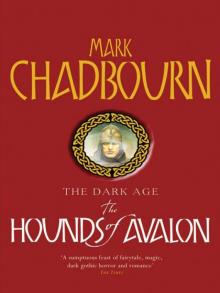 The Hounds of Avalon tda-3
The Hounds of Avalon tda-3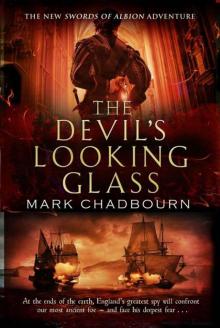 The Devil's Looking-Glass soa-3
The Devil's Looking-Glass soa-3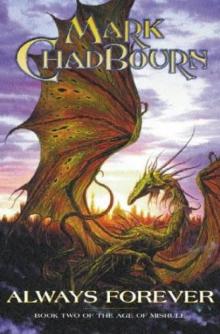 Always Forever taom-3
Always Forever taom-3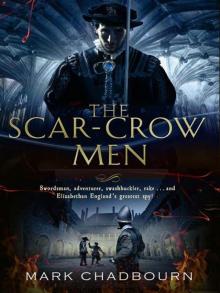 The Scar-Crow Men
The Scar-Crow Men Destroyer of Worlds kots-3
Destroyer of Worlds kots-3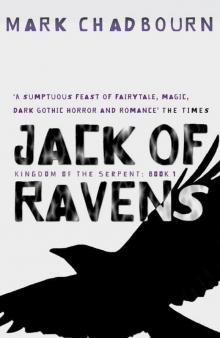 Jack of Ravens kots-1
Jack of Ravens kots-1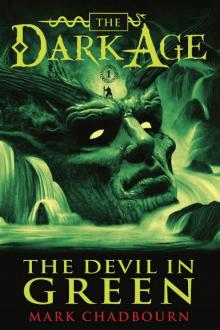 The Devil in Green
The Devil in Green World's End
World's End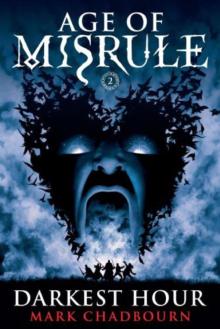 Darkest Hour (Age of Misrule, Book 2)
Darkest Hour (Age of Misrule, Book 2) Destroyer of Worlds
Destroyer of Worlds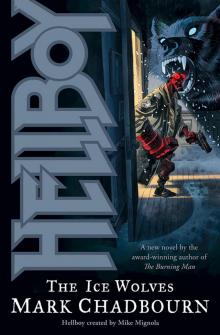 The Ice Wolves
The Ice Wolves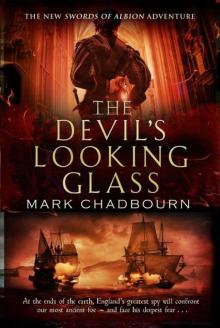 The Devil soa-3
The Devil soa-3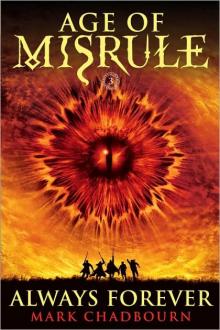 Always Forever
Always Forever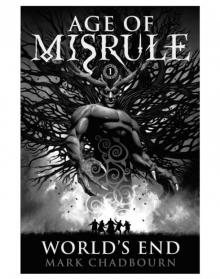 World's End (Age of Misrule, Book 1)
World's End (Age of Misrule, Book 1)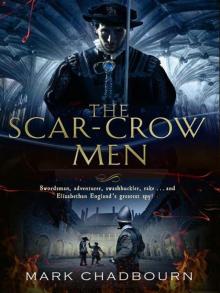 The Scar-Crow Men soa-2
The Scar-Crow Men soa-2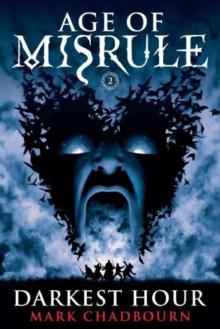 Darkest hour aom-2
Darkest hour aom-2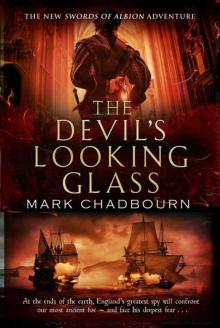 The Devil's Looking-Glass
The Devil's Looking-Glass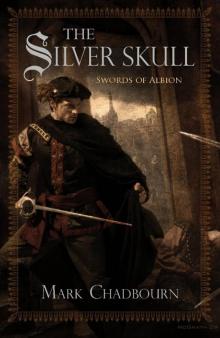 The Silver Skull
The Silver Skull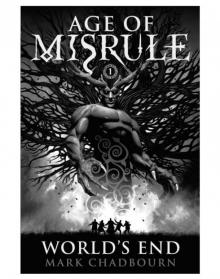 World's end taom-1
World's end taom-1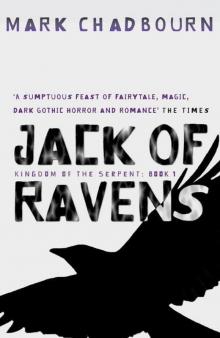 Jack of Ravens
Jack of Ravens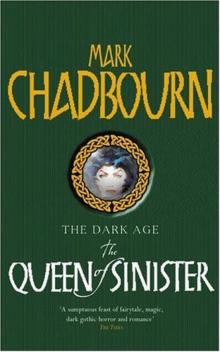 The Queen of Sinister
The Queen of Sinister